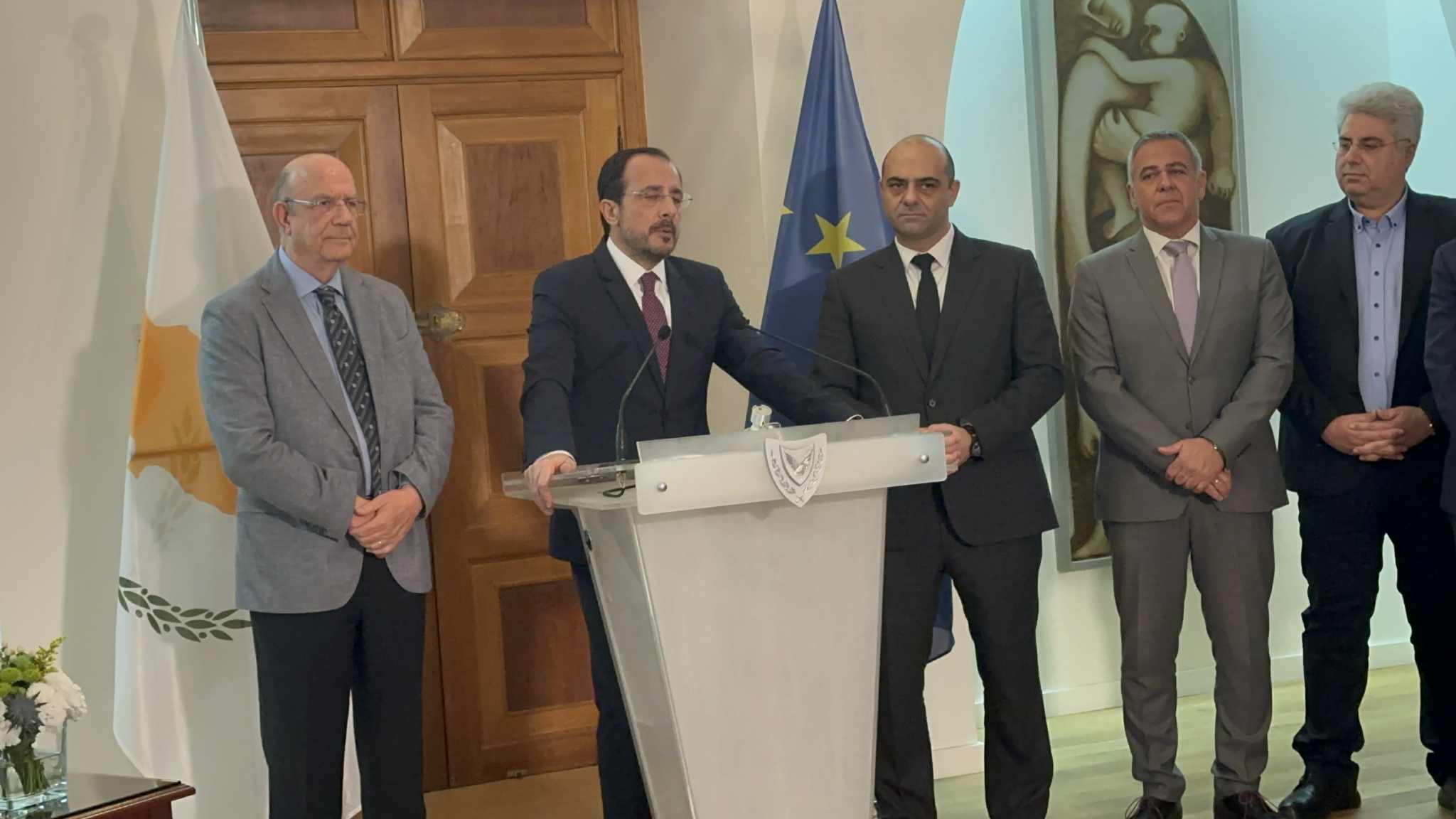An agreement was signed on Thursday to bring to an end the months of wrangling between workers and employers over the cost-of-living allowance (CoLA) and set how it is implemented going forward.
The signing was attended by President Nikos Christodoulides, who said that “a significant effort has been completed”.
“A permanent agreement on CoLA has been achieved through a responsible and constructive dialogue,” he said, before adding that “more than 55,000 additional beneficiaries” will now receive CoLA.
“Reaching an agreement was not easy. Convergences and compromises were needed. This is the product of maturity and mutual respect between the social partners.”
He also heaped praise on his own government’s performance in allowing for an expansion of CoLA, saying that “the positive course of the economy, reflected in continuous growth, the reduction of public debt, and the achievement of full employment conditions, creates the possibilities for the implementation of policies which improve people’s lives”.
He then stressed that “achieving today’s agreement was neither easy or a given”, in light of the originally divergent positions of the workers and the employers.
“Convergences and compromises between different aspirations and approaches between the employers and the unions makes today’s result even more important,” he said, before stressing the government’s “satisfaction with the attitude of all parties which contributed creatively” to the agreement.
Former Cyprus chamber of commerce and industry (Keve) chairman Christodoulos Angastiniotis, meanwhile, said the agreement had come about after “long and arduous negotiations”, and added that there had bee “concessions on both sides” to bring about the result.
Employers’ and industrialists’ federation (Oev) chairman George Pantelides described the agreement as “a product of compromise, which led to an agreement without winners and losers”.
“The employer side once again emphasizes the importance it attaches to its human resources [and] will, through targeted actions, continue to develop and invest in them,” he said.
Trade union Peo leader Sotiroula Charalambous said that “for all these months, workers have fought a difficult fight” and highlighted that workers had been “forced to resort to strike measures” over the matter earlier in the year.
Deok leader Stelios Christodoulou said that trade unions had been both united and fair, and that “this is why we have a result today, which, under the circumstances, we consider to be quite satisfactory”.
He added that he hopes for CoLA to be expanded further “to cover as many workers as possible, so that the wealth produced in our country is shared more fairly”.
Sek leader Andreas Matsas said the agreement constitutes “a message with many recipients, but also to the workers themselves, that through their support and contribution, we can achieve even more”.
He also thanked Christodoulides for what he described as a “catalysing contribution”, and praised the “thousands of workers who believed in the possibility of successfully completing the progress. [who] supported the effort and place their hopes in the trade union movement”.
Earlier, trade union Pasydy leader Stratis Mattheou said the agreement will bring about gradual increase in the amount of CoLA paid over the coming 20 months.
The amount of CoLA paid will rise from its current rate – 66.7 per cent of the rate of the increase of the cost of living as a percentage of a worker’s salary – to 80 per cent on January 1.
This will mean that if the cost of living increased by four per cent, workers will receive a boost of 3.2 per cent to their salaries in CoLA payments, rather than the current 2.68 per cent.
The agreement will see that rate increase to 90 per cent on July 1 next year, and then to 100 per cent on January 1, 2027, with payments being made once a year during years in which Cyprus’ real gross domestic product increases.
In addition, the agreement foresees the introduction of a ceiling of four per cent in CoLA in the amount payable.
If there is an economic crisis, the labour advisory board will convene and “provide recommendations”.
The agreement comes after employers’ and industrialists’ federation (Oev) and the Cyprus chamber of commerce and industry (Keve) had last week rejected a proposal to resolve the matter, describing that proposal as “unsatisfactory” and saying that it “cannot be accepted and signed as it is”.
Their rejection of last week’s proposal had come shortly after trade unions had accepted it, with Union of Cyprus journalists leader Giorgos Frangos saying workers had acquiesced to the government’s proposal “in a spirit of prudence, consensus, and reconciliation”.
Thursday’s signing brings to an end a bitter and longstanding dispute over the matter, which in September had seen workers engage in a three-hour general strike which saw the island brought to a standstill.
On that day, public services and public transport were the most affected, with more than 50 flights and 15,000 airline passengers impacted by the strike, while trade unionists across the island took to the streets.







Click here to change your cookie preferences